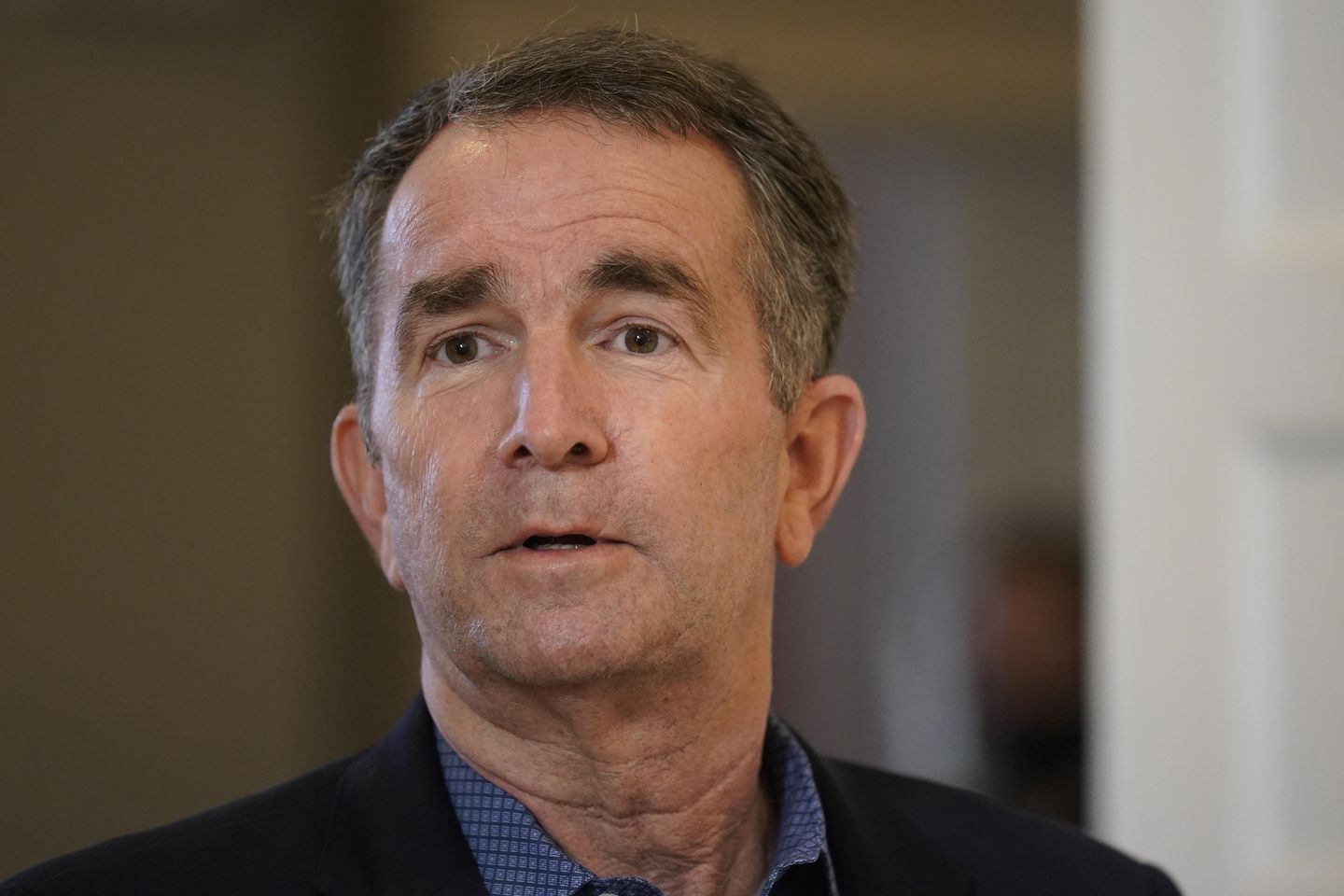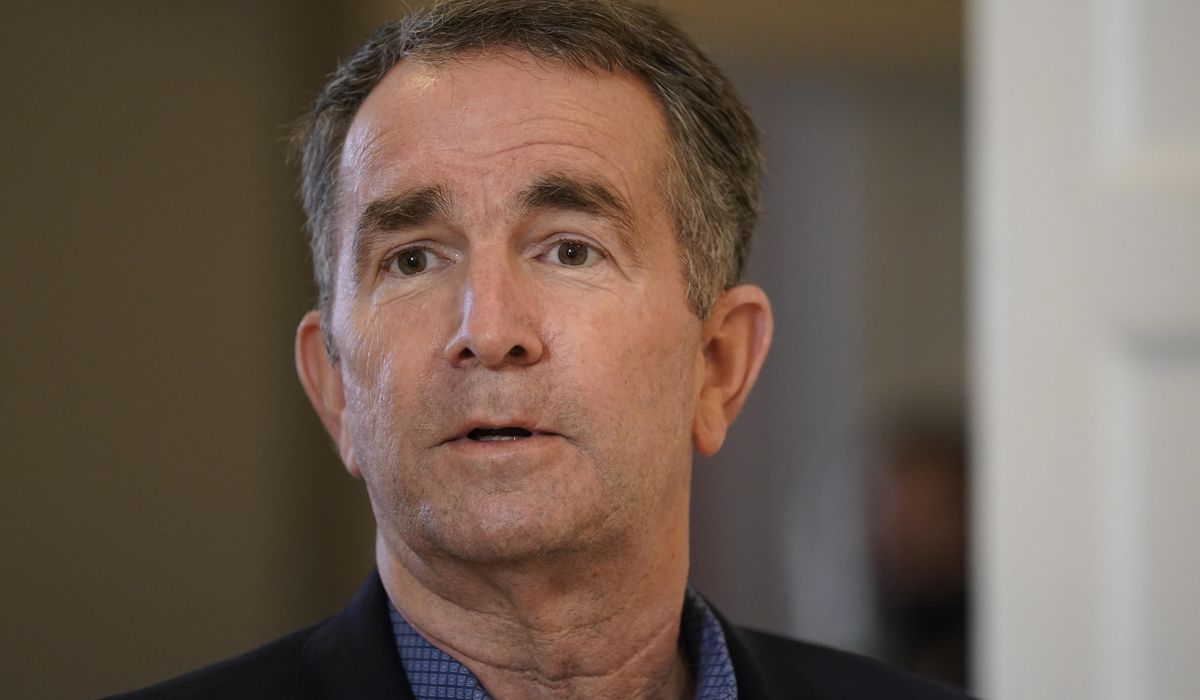[ad_1]

RICHMOND, Va. (AP) – Crystal Clifton, a former restaurant worker in southwest Virginia, waited 10 months for the state to review whether she was entitled to unemployment benefits.
Clifton, 55, says she applied last March, when coronavirus-related shutdowns first began impacting Virginia. She received benefits until May, when she declined her boss’s request to return to work. She felt it was unsafe to go back because she has hypertension and stage two chronic obstructive pulmonary disease, which make her vulnerable to the virus and almost incapable of breathing while wearing a mask to protect against it.
After The Associated Press questioned state officials about her case, Clifton got a message Wednesday from the Virginia Employment Commission telling her she should apply for Pandemic Unemployment Assistance, a program created last year by a federal relief bill.
“Why all the sudden when they’ve had all that information all this time?” said Clifton, who described being unable to apply for that program previously because her initial application for traditional benefits was in limbo.
The pandemic’s surge in applications for jobless benefits swamped the commission and laid bare a number of problems with the system in Virginia and other states. Recently, the General Assembly approved a bill awaiting action from Democratic Gov. Ralph Northam that aims to tilt the scales in favor of workers like Clifton and the tens of thousands of Virginians like her who over the course of the pandemic found themselves stuck in the same bureaucratic morass.
The measure from Del. Sally Hudson would essentially codify an executive directive Northam made in December, so that someone initially determined to be eligible for benefits won’t lose that help before they have a chance to have their case decided.
“From a labor law perspective, it’s a due process issue,” said Hudson, a labor economist who teaches at the University of Virginia.
Northam’s order freed up payments to tens of thousands of Virginians while the Virginia Employment Commission worked through a backlog of claims needing adjudication. It’s not clear why Clifton wasn’t affected by the governor’s directive.
Hudson’s measure would also make another significant change: It directs the commission to forgive overpayments due to state or employer error if the recipient is effectively unable to repay. That’s a policy most other U.S. states, including many conservative Southern ones, already have in place.
Hudson said the state anticipates forgiving about $18 million in overpayments. Lawmakers agreed to have the state foot this bill, rather than recover the money through a tax on employers.
Carolyn and Zack Leasure, a Charlottesville couple who both lost work at various points in the past year, are wondering if that part of the measure might help them.
Zack Leasure, an executive chef who was laid off early in the pandemic, recently received a letter saying he was ineligible for the benefits he’d received and was liable to repay $19,650.
But his exact situation is also unclear: On the same day, he also received a letter saying he’d been found eligible for benefits.
The seemingly contradictory correspondence, which the family shared with AP, was the latest confusing turn in what Carolyn Leasure described as an absurd, nightmarish experience navigating the unemployment system. The Leasures also found themselves in a situation like Clifton’s last year, with benefits on pause, inexplicably waiting months for a hearing, unable to get answers from the commission, and on the brink of financial disaster until they qualified for rent assistance.
“From our perspective, the agency is completely mismanaged and they are ruining lives they should be helping,” Carolyn Leasure wrote in an email.
The agency does not comment in detail about individuals’ claims. Spokeswoman Joyce Fogg wrote in an email that there are an array of reasons why someone might not be receiving benefits.
“We cannot pay ineligible people under the law,” she wrote.
Hudson’s measure, if signed by Northam, would take effect this July – but would expire in July 2022. That sunset date is something Hudson tried to negotiate away, without success.
Alena Yarmosky, Northam’s spokeswoman, said the governor looks forward to reviewing the measure. The commission did not take a position on the bill during the legislative session.
Pat Levy-Lavelle, an attorney with the Legal Aid Justice Center who is helping Clifton, called Hudson’s measure “meaningful forward progress” for people suffering from unemployment.
As for Clifton, Levy-Lavelle said he was worried that her application fell through the cracks.
In December, a representative of the employment commission wrote to him about Clifton’s case: “This review will be done in the order the claim was filed and will take a significant amount of time, there is nothing we can do to expedite her claim.”
In order to apply for Pandemic Unemployment Assistance, as Clifton was directed to do Wednesday, individuals first must apply for and be declined traditional unemployment, according to directions on the commission‘s website.
The commission was deluged with an unprecedented surge of applications for benefits last year. It has since worked to increase staffing, and about 1.3 million people in a state of about 8.5 million have received payments since last March, Fogg said.
But Levy-Lavelle said it’s concerning that the legal aid center continues to hear from people still waiting months to get benefits, or even answers.
“The fact that we’re a full year after the pandemic and emergency relief is still not coming on an emergency basis is just unacceptable,” he said.
[ad_2]
